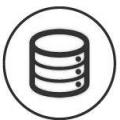There is an unfortunate common perception that "I've taken a survey so I can write one." Yet there is a definite science to writing and fielding a survey that will result in high quality data. Over one hundred years of experimental design research has informed questionnaire design and field work. Books, scholarly articles, government working papers and conference presentations contain a weal
Sign up for our weekly newsletter!
This is an archive of our past training offerings. We are looking to include workshops on topics not yet covered here. Is there something not currently on the list? Send us a proposal.
This 2-hour workshop is geared towards applied researchers looking to use R for basic data analysis. It will introduce participants to the basics of data manipulation (notably using plyr and reshape2), regression, and regression diagnostics.
This two-part series covers how to organize and analyze qualitative data, and how to use NVivo in the process. Researchers new to qualitative methods are encouraged to attend both sessions.
This 2-hour workshop will provide a comprehensive overview of graphics in R. Participants will learn how to construct, customize, and export a variety of plot types using base graphics, lattice, and ggplot2. Previous experience with R is assumed.
NIH requires that all peer-reviewed articles published since April 2008 be made publicaly available through its PubMed Central repository. While the basic premise is simple – taxpayer funded research should be available to all – the logistics are not.
This workshop will cover the main types of weighting, to correct for bias in sample data. These types of weights are designed to compensate for different selection probabilities, to correct for non-response, and to post-stratify data to match the demographic distributions found in census data or other criterion distributions.
SDA is a set of programs for the documentation and Web-based analysis of survey data. It is a useful tool for the online exploration and analysis of survey data. This workshop will illustrate the basic features of SDA, using several of the many large datasets available for online analysis with SDA.
This workshop provides an introduction of historical research cases and ethical principles, and a discussion of federal regulations overseeing human subjects research.
Just as being able to write grammatically correct sentences doesn't make one a good writer, being able to write good code takes a little thought and practice. This workshop will cover good coding practice, style conventions, and tips on how to write and use code efficiently, with an emphasis on writing code that other people (like Future You) will need to comprehend.
Zotero is a powerful, open-source reference management tool. For the first hour, the presenter will demonstrate the key Zotero features: importing and creating new references; managing references; inserting citations into a manuscript; and formatting bibliographies in hundreds of styles. The demonstration will be followed by a 30-minute question-and-answer session.
This Python workshop is pitched at newcomers who need an "on-ramp" to scientific computing. We'll complete 8 sessions over 4 days.
This 4-hour workshop on "natural language processing" or "text mining” will explore the use of Python to extract meaningful information in text collections: interview transcripts, letters, pamphlets, newspaper articles, etc. Basic knowledge of python is required.
This workshop will introduce participants to metadata used by libraries, archives, and museums to describe and encode online digital collections. We will look at why and how metadata is used, and explore what lies behind digital research collections online. No prior experience required.
TBA
It is recommended to have some familiarity with database design or to have taken Introduction to Databases in advance.
This 2-hour workshop introduces the basics of data analysis in R, a powerful and free open-source programming environment. You will learn the core properties of the R programming language through step-by-step examples and scaffolded exercises with data provided by the instructor.
Using Open Office Base, this two-meeting workshop will focus on the practical use of relational database software for conducting primary source research. The workshop series is be geared toward beginners to database software and will include the basics of relational databases; how to plan and organize a relational database; how to work with forms and import your data; and how to query your data.
This 2-hour workshop introduces the basics of data analysis in R, a powerful and free open-source programming environment. You will learn the core properties of the R programming language through step-by-step examples and scaffolded exercises with data provided by the instructor.
This 2-hour workshop introduces the basics of data analysis in R, a powerful and free open-source programming environment. You will learn the core properties of the R programming language through step-by-step examples and scaffolded exercises with data provided by the instructor.
Regression analysis is a standard statistical method used in most analyses of social science data. This workshop will provide an overview of regression analysis, structured for individuals with knowledge of basic statistics but little to no background in regression. Regression procedures will be implemented in R.
Aimed at students with no background knowledge in programming languages or statistics. Participants will be led step-by-step through the basics of using R for data exploration and analysis, with an emphasis on developing core skills that can be ported over to one's own data sets. NOTE: This is a TWO-part workshop.






